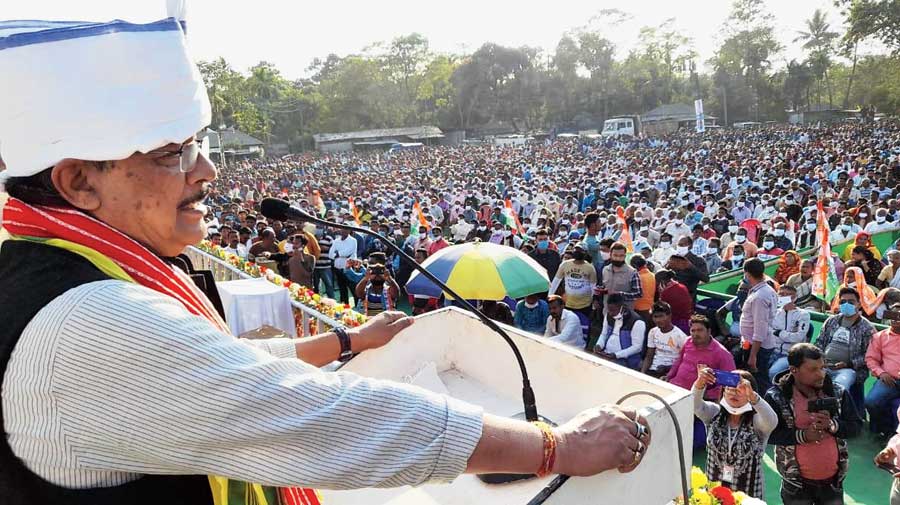
Bengal tea belt wage hike chant grows louder

In all, around three lakh workers serve in the tea industry. Apart from them, around 10,000-odd staff and sub-staff who work in the industry have also demanded revision of their salaries.
“The workers have pointed out that had there been a three-year agreement (for increment) in 2017 (when the last agreement expired), it would have ended in 2020. They want a new agreement in force after tripartite talks unless the minimum wage rate is fixed,” said Alok Chakraborty, the president of Intuc–affiliated National Union of Plantation Workers.
The demand has come as a fresh poser for Trinamul ahead of Bengal elections due in less than six months.
That the demand is gaining ground in the tea belt has been perceived by Trinamul leaders. State labour minister and party leader Moloy Ghatak, who was in Alipurduar district on Friday, asserted in a public meeting organised by the party that the state would soon take appropriate steps in this regard.
“We want to assure the tea workers and their families that the state government will take all steps during next couple of months for revision of wage rates,” said Ghatak at the meeting.
Like its political contenders, Trinamul too is eyeing the Assembly seats of north Bengal, among which results of some 15 seats are decided by the tea population.
A senior tea trade union leader based in the Dooars said it was necessary for the state government to take the initiative and see that the wage rate is revised ahead of Bengal elections.
“Mamata Banerjee is trying to woo the tea population by expediting the implementation of the tea worker housing scheme but wage revision is an equally important issue,” he said.
In the tea industry, wage rate is determined on the basis of tripartite talks and agreement signed for a period of three years. The last wage agreement was signed in 2015 (with retrospective effect from April 1, 2014) and expired on March 31, 2017.
In 2015, the state also formed a committee of stakeholders and government officials to recommend the minimum wage rate to the government, which was a longstanding demand of the industry.
In 2017, a tea worker used to earn Rs 132.50 a day. However, as no decision was reached on minimum wage, the demand to revise wage rate was raised, and eventually the state announced two interim hikes in 2018. Unlike earlier years, no agreement was signed this time.
Also, as the state started supplying food grain at subsidised rates to tea workers and planters could make some savings from it, it was agreed that an amount would be added to the daily wage rate as a cash component of the ration.
In all, the daily wage rate increased to Rs 176 in October 2018. The rate is the same even now, in 2020-end.
Now that two years have passed after the last revision and no decision has been reached on the minimum wage, the workers want another hike.
(https://www.telegraphindia.com/west-bengal/bengal-tea-belt-wage-hike-chant-grows-louder/cid/1799581)


0 Response to "Bengal tea belt wage hike chant grows louder"
Post a Comment
Disclaimer Note:
The views expressed in the articles published here are solely those of the author and do not necessarily reflect the official policy, position, or perspective of Kalimpong News or KalimNews. Kalimpong News and KalimNews disclaim all liability for the published or posted articles, news, and information and assume no responsibility for the accuracy or validity of the content.
Kalimpong News is a non-profit online news platform managed by KalimNews and operated under the Kalimpong Press Club.
Comment Policy:
We encourage respectful and constructive discussions. Please ensure decency while commenting and register with your email ID to participate.
Note: only a member of this blog may post a comment.